Can coffee that once awakened the world save brick-and-mortar retailers?
For brick-and-mortar stores, these are the worst times and the best times. In what direction should physical stores transform and upgrade? Perhaps this article will give you some inspiration.
The dilemma of physical retail
There is no denying that e-commerce is rampant, and now the tide of physical store closures is surging more than ever. But this is also an era of survival of the fittest: the rise of the middle class, the upgrading of consumption, consumers have more brand choices, and only high-quality brands that pay more attention to consumer demand and experience can win the competition for consumers to vote in RMB.
Strong impact of e-commerce
In the Internet era, many traditional retailers are facing obstacles to growth in the face of the impact of e-commerce. So we often see the following news:
·ZARA, which was highly regarded, also began to close the store. In the end, it was offline!
·Macy's store closure triggered a chain effect that impacted the US retail industry!
Close the shop! Close the shop! Close the shop! Physical retail can only wait for death?
·How to save yourself when the performance declines frequently and the department store is old?
The rise of China's middle class
According to CHFS survey data in 2015, the number of middle class in China reached 204 million. The middle class is creating a consumer market with great potential. In addition to consumer price and quality, the consumption of the middle class pays more attention to differentiated and personalized products and services. The sense of scene, ceremony and professionalism of consumption become the emotional drive of the middle class.
Nowadays, the "quality life of the middle class" has shown strong appeal and appeal, and the interests of the middle class have begun to influence social customs. This group is becoming more and more attractive. Traditional bricks-and-mortar retailing is no longer working.
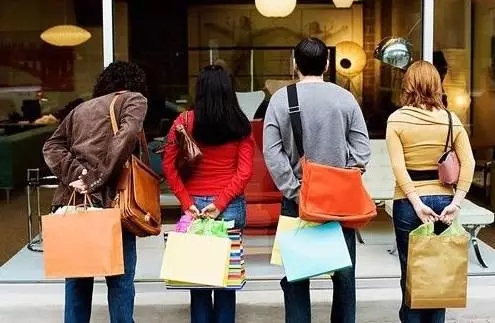
Image Source: Interface
consumption upgrading
With the rise of China's huge middle class, China is currently in a stage of consumption upgrading. Consumers 'focus on quality of life experiences means retailers need to provide consumers with deeper spiritual and cultural values.
If physical retail can grasp this consumer demand and try to meet this demand, it is a way for physical retail enterprises to break through the current dilemma.
Fortunately, despite the impact of e-commerce, many consumers are still willing to interact with physical stores. Data on changes in consumer shopping channels from 2013 to 2017 in the 2017 Total Retail Report released by consulting firm PricewaterhouseCoopers show that physical store shopping gradually picked up in 2016 and 2017 after three consecutive years of significant decline in 2013-2015.
There is still plenty of room for physical stores, but as PricewaterhouseCoopers reports,"the real problem is creating a physical store environment that converts offline shoppers into current customers." Therefore, the physical retail transformation is imminent.
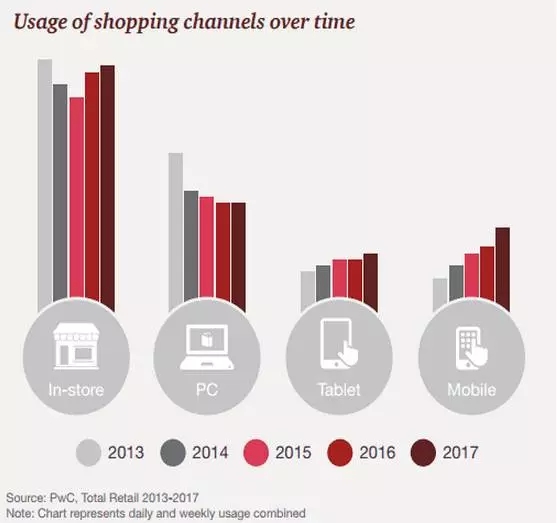
Source: Total Retail Survey 2017
When the business trend has transformed to service-experience consumption, consumption has brand-new requirements for real-time, scenario, intelligence, flexibility and experience of shopping environment.
In order to break through the increasingly homogeneous status quo of the retail industry to meet the "new tastes" of consumers, physical retail has resorted to various tricks, from the popular VR experience to intelligent parking, robot shopping guide, intelligent fitting room...
The introduction of coffee industry is also regarded as one of the important breakthroughs in seeking differentiated competition.
Coffee breaks the game.
Coffee is known as "the aroma that awakens the world."
After entering the era of mobile Internet and big data in the 21st century, magical coffee beans have been given a new task by many traditional retailers: saving physical retail stores that have been hit by e-commerce.
So, how exactly does coffee save physical retail stores? Can a small coffee bean do the job?
Coffee and cafés have been popular for 500 years since they were introduced to Europe in 1615. Coffee became a culture and a huge business. Starbucks, the world's largest coffee chain, has more than 23,000 stores in 68 countries.
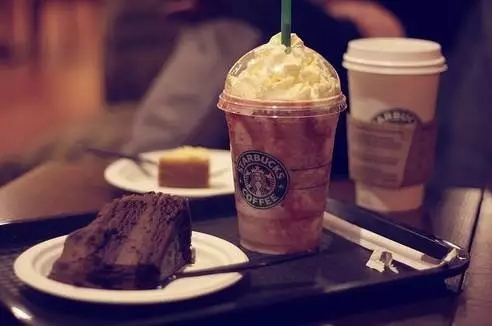
Source: Win Business Network
Coffee has been introduced in various ways to retail outlets in different consumer goods and services industries, and even to the B2B industry.
1. How coffee saves physical retail stores
Looking at the physical stores that combine coffee and food at home and abroad, they can be roughly divided into four modes: brand store, store-in-store, plug-in type and resident type. See below for details:
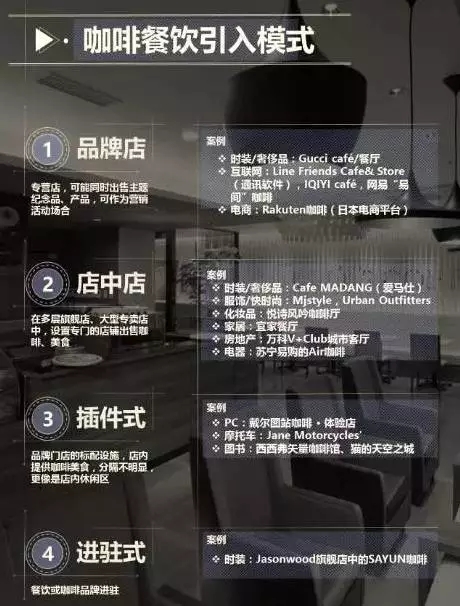
Under the impact of e-commerce, physical retail stores are seeking transformation in various ways. Improving the customer experience by introducing coffee gourmet is certainly a good attempt. This cross-border operation has several advantages:
Enhance the shopping experience while improving convenience in contrast to online shopping
In the era of e-commerce, physical stores still have irreplaceable advantages. Coffee and food can enhance the shopping experience of physical stores, facilitate customers to take a break after shopping, and improve the attraction of stores.
Increase customer traffic and extend customer stay in the store
A few tables, chairs and a cup of coffee give customers a reason to sit in the store without stress, and the longer they stay in the store, the more opportunities they have to learn more about the products in the store and the likelihood of shopping increases.
Strengthen the concept of "lifestyle brand" by virtue of the aesthetic and cultural connotation of coffee and food itself
Coffee symbolizes enjoyment, leisure and quietness, while delicious and good-looking food keeps people in love with life. Integrating these elements into the brand concept is a promotion of brand image, as if telling the story of the brand in bits and pieces, making the brand closer to personal life.
Cafes have complex functions
Cafe has social attributes, which is convenient for communication experience activities and product display, and can realize various marketing forms. From product display to new product launch, it can be done in cafes, and daily fan interaction activities can be carried out to enhance fan loyalty.
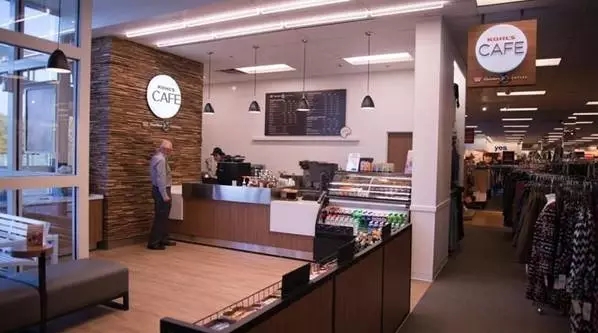
Photo source: Curiosity Daily
Can coffee really save retail stores?
With such versatility, coffee and physical cross-border trial strategies are seen by many as a magic weapon to save physical retail. It remains to be seen how commercially viable it will be, but there are plenty of practitioners at home and abroad.
BURBERRY/Chanel/Gap/Microsoft: Some Typical Cases Abroad
▽
Burberry Cafe
On June 16, 2015, British luxury brand BURBERRY opened Thomas s Café, an all-day, English-only cafe in London.
Named after its founder, Thomas, the cafe has officially opened its doors at BURBERRY's flagship store at 121 Regent Street in London.
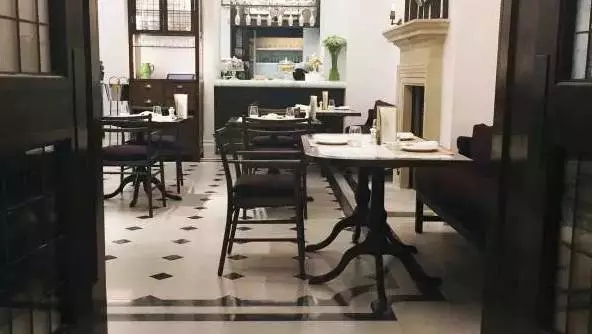
The café serves all-day meals including classic afternoon tea, lobster chips and other British delicacies; Thomas s Café also selects quality seasonal ingredients from smallholder farmers and artisans across the country for chefs to process, so that guests can taste the highest British taste.
Chanel "Coffee Shop"
Some retailers do not open permanent cafes, but hold temporary events and open pop-ups. Chanel recently opened COCO CAFE, a pop-up shop at So-Cal Link Gallery in Omotesando, Tokyo, Japan.
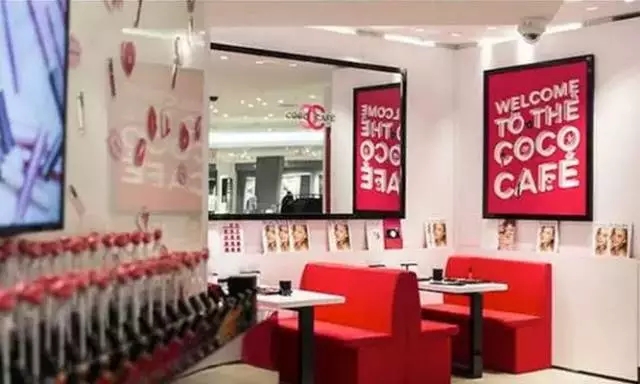
Image Source: Business and Real Estate
Of course, Chanel isn't really selling coffee. The real purpose of this coffee shop is to promote Chanel's new lip gloss ROUGE COCO GLOSS.
COCO CAFE mimics the design of traditional tea restaurants, with hand-painted illustration walls on one side and interactive fluorescent curtain walls on the other. Customers can enjoy a cup of coffee and a free snack inside.
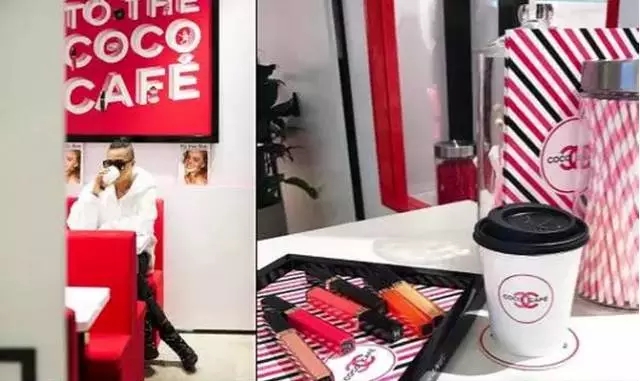
Image Source: Business and Real Estate
Gap has a temporary coffee area
Gap also chose to open a temporary coffee area in the store for two months during loyalty shopping, offering Lion Coffee and selling records.
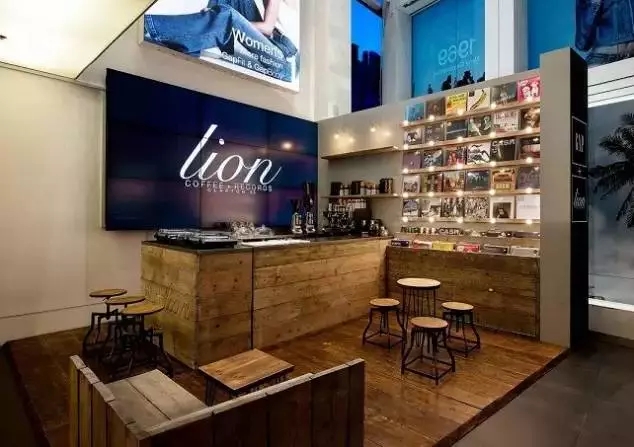
Microsoft Digital Cafe
In November 2013, Microsoft opened a cafe in the center of Berlin-"Digital Cafe", where you can experience digital products such as Microsoft tablets, X-Box or Windows phones online, and drink a cup of coffee in this quiet and comfortable atmosphere.
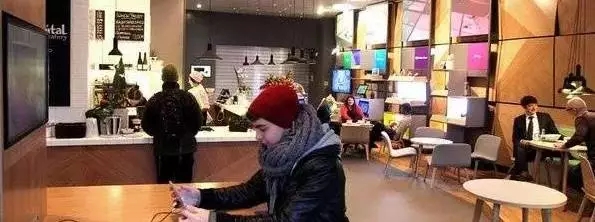
coffee in China
China's coffee market has huge development potential
In 2016, Starbucks announced its ambitious expansion plans in China. Starbucks CEO Howard Schultz told The Wall Street Journal that Starbucks plans to double the number of stores in China over the next five years.
Starbucks now has more than 2000 stores in China, and it took Starbucks almost 17 years to reach that number.
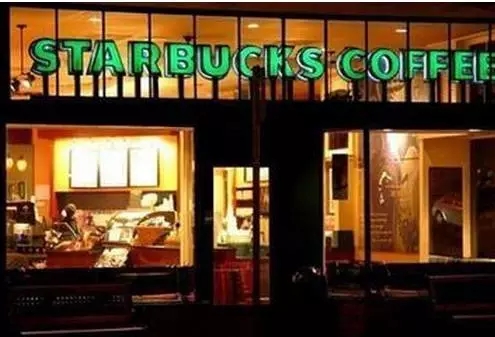
Source: Win Business Network
Howard Schultz's ambitions stem from China's fast-growing coffee market. Although compared with the global market, China's coffee market is still in its infancy. At present, China's average annual coffee consumption is only 4 cups, and that of first-tier cities such as Beijing, Shanghai and Guangzhou is only 20 cups per year, compared with 200 cups per year consumed by neighboring Japanese and 325 cups in EU countries.
However, coffee is expected to grow fastest in China, with an annual growth rate of 15-20% from 2014 to 2019, compared with an annual growth rate of only 2% in world coffee consumption.
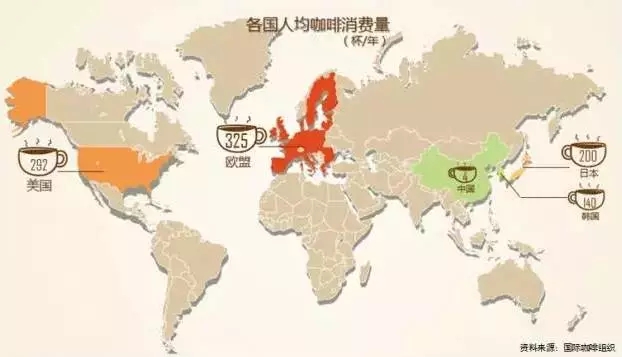
The universal value of coffee in China
China's consumer goods industry as a whole has been underperforming in recent years, but some companies with specific labels advocating "lifestyle" have done well, such as Muji, IKEA and Starbucks. This is related to the fact that China's huge middle-class consumers are currently in the stage of consumption upgrading as a whole.
Some companies that really understand what "consumer upgrading" means have maintained growth in the downturn.
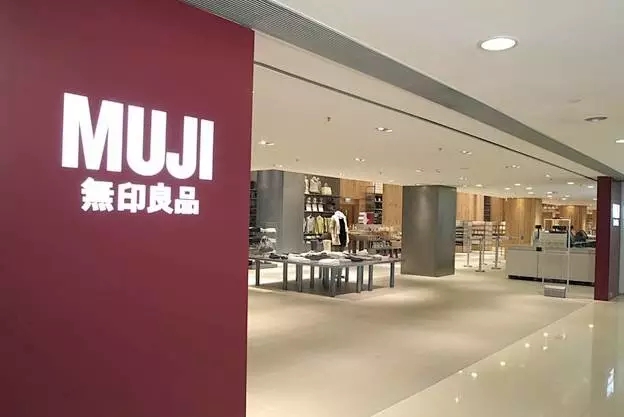
Photo Source: Ge Zhe Design
"Lifestyle" means retailers need to provide consumers with deeper spiritual and cultural values. In China, the popularization of coffee education has been telling consumers: this is a foreign drink, different coffee beans represent different flavors, and spending time in cafes is a tasteful lifestyle. Coffee has become a universal consumption.
Therefore, in the Chinese market, coffee and physical stores have also begun to carry out various cross-border and integration. From stable real estate companies and banks to retail stores, including high-end luxury goods, many companies are beginning to experiment with offline cafes, even including the emerging Internet industry.
Cross-border cases of coffee in China
Suning Yundian Air Coffee
Suning Cloud Store, which opened in Beijing, Shanghai and other places for six consecutive years in 2015, is an Internet-based physical store built by Suning relying on Suning Easy Buy, in which there are game experience areas, life experience areas, Internet service experience areas and other experience scene shopping areas.
Air Coffee is standard in Suning Cloud Store, which can provide customers with space for rest and communication. It can also be used as a product display area for customers to experience products while drinking coffee.
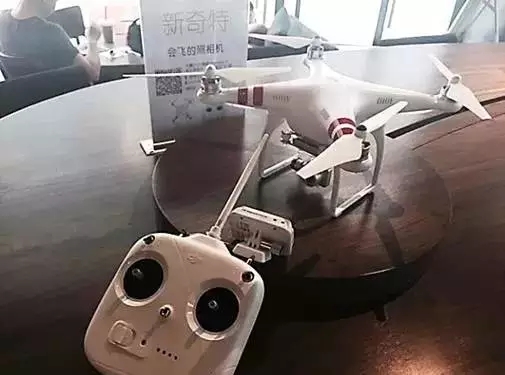
Gucci Restaurant
In July 2015, Gucci opened a new restaurant "1921 Gucci" in Shanghai World Trade Square, which continued Gucci's luxurious and simple style, combining wood tones, gold and rice tones, and menus, tableware and napkins were also made by Gucci.
In addition to the words "1921 Gucci" embroidered on the wall and dinner cloth, there are not many significant brand marks, but you can still feel the unique brand style of Gucci.
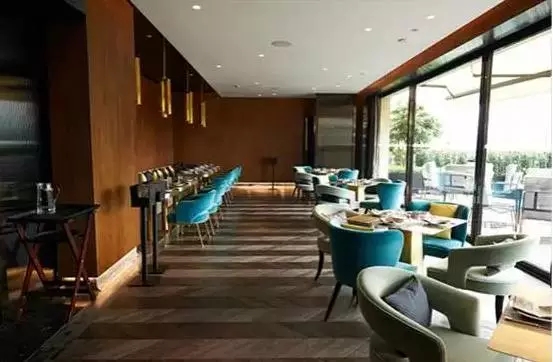
Sony enters coffee shop
With the popularity of smartphones, more and more mobile phone models are beginning to support high-resolution sound quality. Sony hopes to tap into the chinese market with its h.ear line of high-resolution audio headsets, one way to do that is to bring sony products to more cafes.
EarSight, located on University Road, is a well-known "coffee earphone shop" in Shanghai, with more than 30 cooperative brands including Sennheiser, Sony, AKG, KOSS, etc.
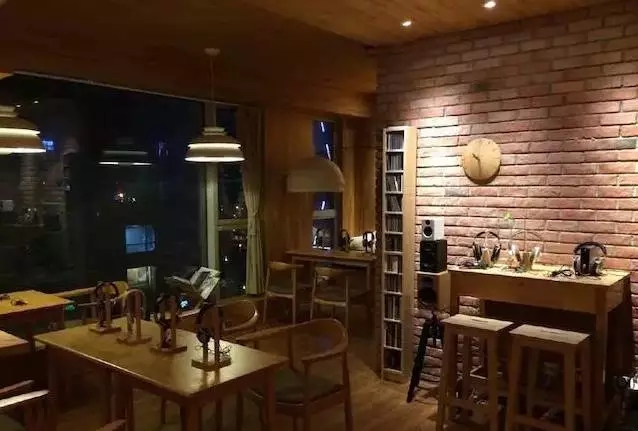
Deltu Coffee Station
Cross-border cafes have also emerged in the B2B field.
Wanda Plaza, CBD District, Beijing (Special Reading)(Related Dry Goods) Map Station Coffee on the ground floor of Building 12-Dell Precision Workstation Experience Center opened in March 2016. In addition to selling Blue Mountain Coffee for 88 yuan a cup, its main function is to display Dell Precision Workstation series products.
In addition, new product launch meetings for dealers can be held here.
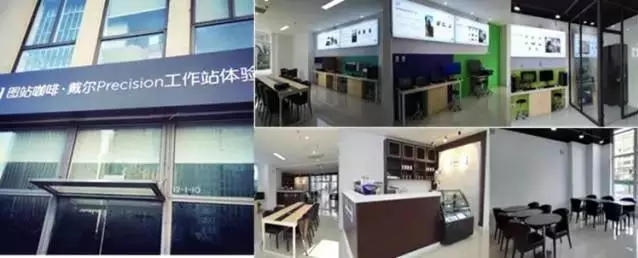
Photographer: Weng Kun
Netease: Easy Coffee
At the Netease 520 Game Day Conference in 2016, Netease released a brand-new business,"Netease Game Cross-border Theme Cafe"-Easy Room, and invited world-class coffee master Lin Dongyuan to serve as the producer of coffee and drinks in Easy Room.
Netease plans to build "Easy Room" into a brand-new cross-border chain coffee brand, which will open 100 theme cafes nationwide. Netease games cleverly cut through the coffee shop, an offline environment with distinct leisure space characteristics:
Here, customers can enjoy high-quality products in a relaxed and pleasant space atmosphere;
Here, customers can enjoy the thrills of the online world.
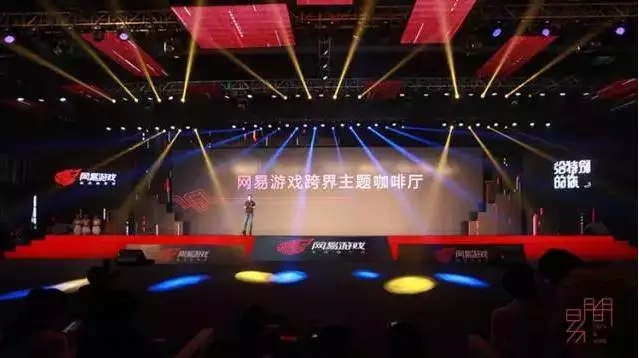
- Summary
However, there is no publicly available analysis of how effective this transformation will be in terms of operating returns.
Despite the increasing number of experimenters, there are also closers. Kohl's, a famous family-oriented professional department store in the United States, has selected two out of its 1200 stores to open coffee pilot areas since September 2015 and recently announced that it will close soon.
Kohl's vice president of corporate communications, Jen Johnson, commented on the closure of the coffee lab: "... despite positive customer feedback, the trial did not show commercial results that would ensure its continuation," according to media reports.
How do you breathe new life into the physical store shopping experience? Whether coffee can wake up the gradually sleeping physical retail, coffee and physical retail cross-border attempt, the final effect, can only be tested by the market, while walking to see.
At least, physical retail is looking for new ideas, which means opportunities and possibilities.
Important Notice :
前街咖啡 FrontStreet Coffee has moved to new addredd:
FrontStreet Coffee Address: 315,Donghua East Road,GuangZhou
Tel:020 38364473
- Prev

The healing department is the "Otter Cafe". The little otter is super coquettish and sleeps in the hands of the guests.
I'm so happy to drink coffee in Japan! In addition to the common cat and dog cafes, there are owls, hedgehogs, grass mud horses and so on, there is no way to see it here! And this time, unexpectedly, even opened the Otter Cafe! Otters can be raised in Japan. I often see Japanese owners bathing with otters and basking them on the balcony.
- Next

Coffee shop report, business situation
Part 1: analysis on the current situation and Development trend of Coffee chain Industry; current situation Survey and Future trend of Coffee chain Market in China (2015-2020) report No.: 15A9305 industry market research belongs to the category of enterprise strategy research, as the most widely used consulting service, its research results are presented in the form of a report, usually including the following: a professional industry
Related
- What documents do you need to go through to open a coffee shop? coffee shop coffee shop certificate processing process
- How to purchase Coffee beans in small Cafe how to choose a suitable supplier for domestic Coffee supply Company
- How to drink Starbucks Fragrance White Coffee? how to make Australian White Coffee? what Italian coffee beans are recommended?
- The Story of Flora Coffee: the name of Flora Coffee Bean and the implication of the Flowers on Florna Coffee
- How much does a cup of coffee cost? How much is the profit of a cup of coffee? What is the profit of the coffee shop in a year?
- Yunnan small Coffee, known as "fragrant Coffee", introduces the characteristics of Alpine Arabica Coffee producing areas in Yunnan, China
- 2023 latest Starbucks full menu price list how much is a cup of Starbucks coffee what is better to drink the most popular hot and cold drinks recommended
- Starbucks different kinds of Coffee Price list Starbucks menu 2023 Top Ten Best drinks in Starbucks
- Starbucks Spring praise Comprehensive matching Coffee Bean theme Story Packaging implication and taste description
- The cost of a cup of coffee latte American coffee cost price and selling price

